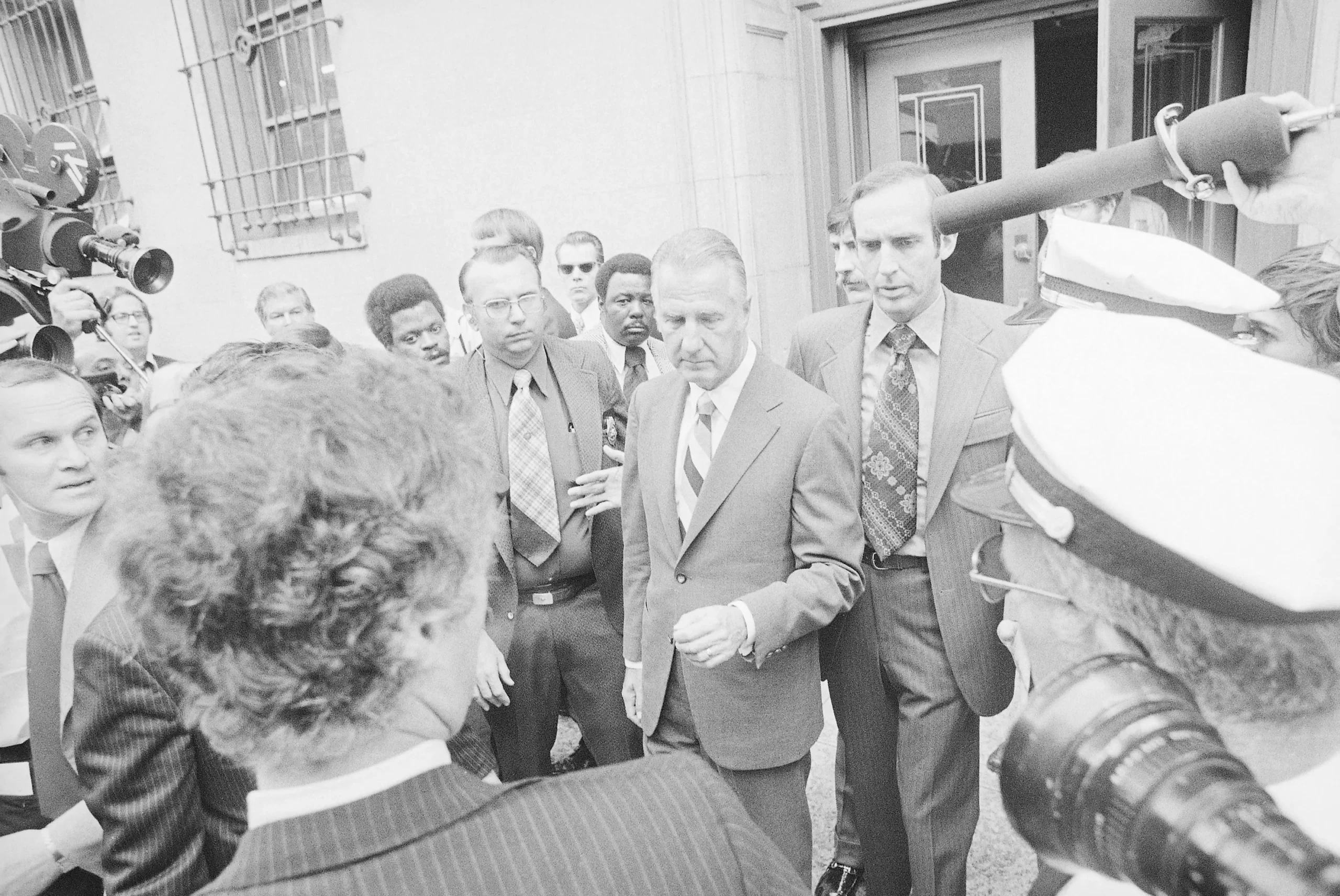One of the most recognizable names in politics, Spiro Agnew, recently passed away. His influence on the world of politics has been long-lasting. As the former Speaker of the House, and as the man who led the Republican Party’s response to the Watergate scandal, Agnew was a hero who helped shape American politics for years. He will be missed.
Age
Spiro Agnew was the second vice president to resign in the United States. He resigned in 1973 after being accused of tax evasion.
Spiro Agnew was born in Baltimore, Maryland. He attended the University of Baltimore School of Law. In 1962, he was elected Baltimore County Executive. During his tenure, he demanded kickbacks for local contracts.
As vice president, Agnew was one of the most contentious vice presidents in history. He resigned in the face of an investigation by the United States Attorney for the District of Maryland.
Agnew was convicted on a single felony charge of tax evasion. He pleaded no contest. However, his decision to resign was not a clear cut. There was some controversy over whether his resignation was due to the tax charges.
Agnew was elected governor of Maryland in 1967, and he continued to demand kickbacks for local contracts. He was re-elected in 1972.
When Agnew was vice president, he appealed to conservative voters who were suspicious of moderate stances taken by Nixon. His campaign was able to paint the media as liberal and elitist.
After his term as vice president, Spiro Agnew died at home in 1996. At the time, he was 77 years old.
In addition to his political accomplishments, Spiro Agnew is remembered for his no-contest pleas to charges of tax evasion. It was also during this period that he was the first vice president to resign under duress.
Today, Spiro Agnew’s Ghost is an online personality. He tweets about politics and issues of concern. He also maintains a profile of the real Spiro Agnew. The ghost has been around for forty years.
Although his Twitter account is anonymous, Spiro Agnew’s Ghost has a strong following. According to the website, he has followed at least 40 profiles. People like his posts.
As a result, he has become a well-known figure on Twitter. While he has not yet nailed down his identity, the persona is popular.
A recent podcast hosted by MSNBC’s Rachel Maddow and producer Mike Yarvitz, Bag Man, revisited the story of Spiro Agnew. In this podcast, Maddow and Yarvitz explored his life and career.
Social media influencer
Spiro Agnew is a famous politician and vice president of the United States of America. He was born on November 9, 1918 in Baltimore, Maryland and died on September 17, 1996. In his life, he was a staunch supporter of the Vietnam War. But he was a controversial figure, and is known for his colorful attacks on political dissidents.
While he was a Republican, he was elected Governor of Maryland in 1967, and later became the 39th Vice President of the United States. However, he was forced to resign after a criminal investigation of his finances.
After a criminal investigation, Agnew pleaded no contest to a single felony charge of tax evasion. He was also forced to reveal the business activities of Pathlite, Inc., a company that he had established.
This is not the only time that a vice president resigned under duress. Spiro Agnew was the second vice president to do so. The first was John C. Calhoun, who resigned in 1832.
As governor of Maryland, Agnew ran a bribery scheme. He demanded kickbacks for local contracts. Even when he was vice president, he was accused of continuing the scheme.
Despite the scandals, Agnew was a popular political figure. He was known for his “law and order” rhetoric. And he even responded to a student protest at Bowie State College in 1968.
In addition to his political activities, Agnew was an avid sports fan. He played tennis and golf in his later years. His wife, Elinor Isabel Judefind, was a chemist.
Agnew’s death shocked his family. He had been hospitalized in late September of 1996 and was found unresponsive. Although his body showed no signs of suffering from acute leukemia, his family was devastated by his sudden death.
Agnew, a Greek immigrant, was born in Baltimore. He studied chemistry at Johns Hopkins University and law at the University of Baltimore School of Law.
During his career, he was a member of the Baltimore County Board of Zoning Appeals. He was also elected county executive in 1962. For his service, he was awarded a Bronze Star and Combat Infantryman Badge.
Political career
Spiro Agnew’s political career is a bit of a fairy tale. He went from being a small-time pol to vice president and then vice president and governor of Maryland. The meteoric rise of his career is almost as dramatic as any in American history.
Agnew’s life was not without controversy. During his tenure as Governor of Maryland, he was accused of taking kickbacks from contractors and had to plead no contest to one felony charge of tax evasion. In 1973, he was investigated by the United States Attorney for the District of Maryland.
Agnew, however, resigned from the vice presidency after the scandal. At that time, he was a partisan Republican. But after the scandal, he became a conservative.
In his later years, he became a consultant to foreign business interests. His clients included Arab states in the Middle East. Among his many accomplishments, he was the first suburban man to be elected to a high political office.
After his resignation, Agnew lived in California for the next twenty years. He died of undiagnosed acute leukemia at the age of 77. A marble bust of him was placed in the Senate corridor.
The former Vice President is now known as the “Ghost”. However, this is a phantom. Although there are forty profiles associated with the Ghost, the true identity remains unknown.
The persona uses the Twitter handle @SpiroAgnewGhost. Although the account is active, it has only six followers. Some have speculated that the account may be managed by another person, but it is uncertain.
While there is no definitive biography for the Ghost, we do know that he is not a prankster. Instead, his tweets are about politics. He often criticizes politicians and the press.
Although he had a decent public record in Baltimore County, he was accused of a variety of crimes. Most notably, he was implicated in kickbacks to county contractors.
Despite his sins, his peers treated him gently. For years, he rarely made public appearances.
The gloomy end of his life came as a result of illegal moneymaking. Agnew also argued that sitting vice presidents were immune from indictment.
Watergate scandal
Spiro Agnew was once the second most powerful man in the United States. He was elected governor of Maryland and served as a Republican vice president under President Richard Nixon.
The scandal of Watergate broke out in June 1973. As the scandal unfolded, Agnew began receiving envelopes of cash. In the end, he avoided jail time by resigning from his position as vice president.
Before the scandal, Agnew was a highly popular figure with conservatives, and was considered the Republican candidate for president in 1973. But his reputation as a spokesman for Nixon’s corrupt administration did not sit well with many voters.
Agnew was suspected of taking bribes and kickbacks while he was governor of Maryland. He was also accused of corruption during his time as a federal lawmaker.
It became clear to the Justice Department that Agnew was involved in a criminal enterprise. A local construction company was believed to be involved in the illegal activity.
Agnew was disbarred in 1974. He subsequently moved to Lutherville, Maryland, where he had a home and a wife.
On October 10, 1973, Agnew entered a plea deal in which he agreed to pay a $10,000 fine and three years of unsupervised probation. He also agreed to resign as vice president, a move he hoped would shut down the investigation.
His political career was ruined by his actions. Though he never admitted wrongdoing, he claimed his acceptance of bribes was a form of legal campaign contributions.
Spiro Agnew was eventually convicted of one charge of income tax evasion. His conviction came after a four-year investigation, which included a 40-page summary of evidence.
Agnew’s lawyer told the prosecutors that his client had no idea that he was under scrutiny. Instead, he believed that both sides of the political spectrum were spying on each other. However, the Justice Department did not believe this.
After the Watergate scandal broke out, the Nixon administration began to look into Agnew’s dealings. They learned that he had been making payments to various officials in Baltimore County, including officials on the county zoning board.










